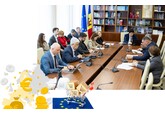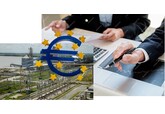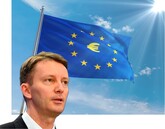
The Moldovan Cabinet of Ministers has approved the draft of a new Law on Electricity, which fully harmonizes the national legal framework with the European one
According to the Ministry of Energy, the new version of the law essentially modernizes the national legal framework in line with the European one and introduces a number of regulations that will stimulate competition, launch the electricity market and its connection with the EU market, facilitate the installation of energy storage systems, electrify the economy and facilitate consumer participation in the energy market. The new version of the Electricity Law transposes EU Energy Package IV, also known as the Electricity Integration Package, part of the Clean Energy Package, which is a commitment Moldova made as a contracting party to the Energy Community Treaty, which will allow for closer integration of Moldova's electricity market into the European market. Thus, the Ministry of Energy, as the author of the draft law, proposed a number of specific tasks aimed at supporting the development of energy infrastructure and stimulating competition on the electricity market: introduction of new activities subject to licensing, including energy storage activities, electricity trading activities, aggregation activities; establishment of general principles for the functioning of electricity markets, including wholesale electricity markets (market of bilateral contracts, forward markets, day-ahead markets); establishment of general principles for the functioning of electricity markets, including wholesale electricity markets. Specific requirements for the functioning of the respective markets should be established in the National Agency for Energy Regulation’s (NAER) regulatory framework (i.e. Electricity Market Rules, Grid Code on balancing, and Grid Code on capacity allocation and congestion management). It is also envisaged to promote new business models in the electricity sector through the development of infrastructure for charging electric vehicles. This activity does not require a license for electricity supply. It is planned to intensify regional cooperation to promote cross-border exchange and congestion management, which are essential aspects of ensuring the stability of the electricity system. It is planned to strengthen the role of consumers and respect their rights as participants in the electricity market, including by introducing the concept of active consumers, encouraging coverage of their own consumption, and creating energy communities of citizens, which will facilitate the transition to a decentralized model of consumption and production. Provision is made for the promotion of smart metering and energy management technologies, including electricity price comparison tools to facilitate the identification of the best offers by end consumers; establishing an obligation to ensure that by the end of 2026 the technical process of changing supplier does not take more than 24 hours. The draft law establishes new responsibilities for NAER with regard to crisis management in the electricity sector. The energy regulator will impose obligations to provide public services; monitor license holders' compliance with the decisions of the Commission for Emergency Situations, applying sanctions if necessary. It is also planned to establish a number of new obligations for the transmission system operator, which plays a decisive role in the integration of Moldova's electricity markets into the regional market (EU single market), including the procurement of system services through the application of market mechanisms and the establishment of rules related to the real-time management of the electricity system; efficient, transparent and non-discriminatory capacity allocation and congestion management in the context of the integration of Moldova's electricity markets into the regional market (e.g. the EU single market). It is planned that the transposition of the EU Regulation on Wholesale Electricity Market Integrity and Transparency will lead both to an increase in the degree of transparency of the wholesale market and to the prevention of cases of abuse by electricity market participants. According to the Ministry of Finance, the draft of the new Electricity Law fully harmonizes the national legal framework with EU legislation, opening up the national energy system to competition, innovation and regional cooperation. The new law contributes to strengthening the country's energy security by providing the necessary prerequisites for reliable, sustainable and competitive energy supply for the benefit of citizens, the business environment and the national economy as a whole. // 16.04.2025 - InfoMarket.







